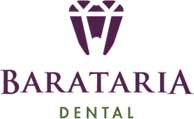Good oral hygiene is crucial to maintaining a healthy and beautiful smile. For this reason, you must brush your teeth at least twice a day, floss on a daily basis, and visit your dentist for routine teeth cleanings.
Other hygienic products can boost your dental health even more, including mouthwash. However, if you have dental implants or other oral appliances, you may wonder if these products are safe to use without harming your fixtures.
Mouthwash enhances your oral cleanliness, even after restorative dental treatments like implant dentistry. But you will need to use this product carefully in order to preserve your smile as well as your dental work.
Discuss introducing mouthwash to your oral hygiene routine with your dentist. And read on to learn details about how mouthwash can affect your smile after replacing missing teeth with dental implants.

What Oral Health Benefits Come from Mouthwash?
Dentists recommend using mouthwash as a part of your oral hygiene routine for a boost to your oral cleanliness. Many people appreciate that this solution works to freshen your breath. But when you rinse with this product once a day, especially after a meal, you can also wash away lingering food particles to prevent bacterial spread that may otherwise lead to gum disease, tooth decay, and other dental problems.
Dental implants are not subject to decay and other dental issues. But if you suffer oral health problems near the implant, this could impact the integrity and fit of the device. Take advantage of oral health benefits from mouthwash. But consult your dentist’s aftercare guidelines if you have dental implants so that you do not disrupt your treatment.
Will Mouthwash Affect My Dental Implants?
In the immediate aftermath of receiving dental implants, you cannot use mouthwash. When you undergo oral surgery, such as the anchor placement in implant dentistry, you cannot perform a spitting action.
The muscle movement will disturb healing blood clots at the surgical sites. If this happens, it could result in a serious condition called dry socket. This painful complication will require emergency intervention from your dentist.
After about one month of recovery from this procedure, you can begin to use mouthwash and experience its resulting oral health advantages. However, you should carefully consider the type of mouthwash you purchase to protect both your implants and your smile.
Choose an antibacterial mouthwash that will work to balance your natural oral bacteria and therefore prevent infections that may impact your implants. Avoid mouthwash that contains alcohol or teeth-whitening ingredients. Harsh materials like these will dry out your mouth and encourage bacterial spread, counteracting the many mouthwash benefits.
Talk to your dentist before you start using mouthwash, especially if you have new dental fixtures in your smile like implants. They will make sure this hygienic tool will suit your specific oral health needs in relation to your dental work. The dentist can provide further oral hygiene and preventative dental care advice when you give them a call today.
